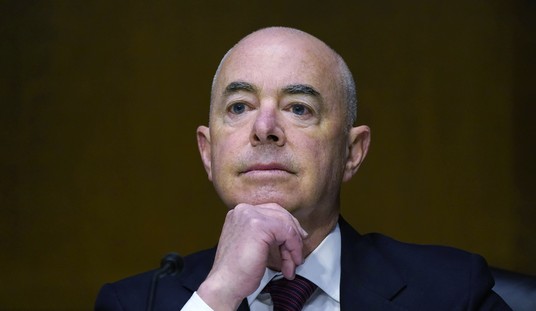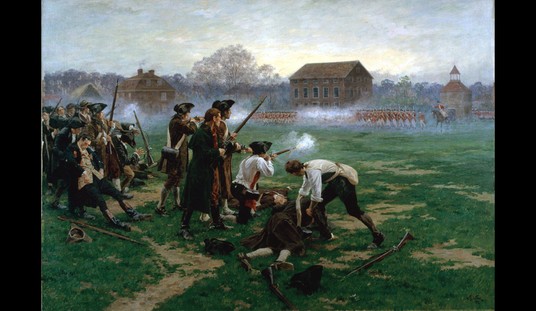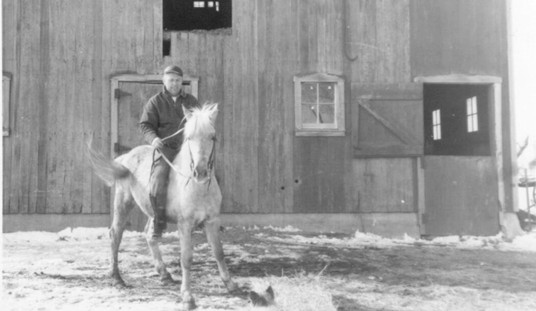Last August, the leftist radicals at the NY Times launched “The 1619 Project.” Here is its stated purpose:
The 1619 Project is an ongoing initiative from The New York Times Magazine that began in August 2019, the 400th anniversary of the beginning of American slavery. It aims to reframe the country’s history by placing the consequences of slavery and the contributions of black Americans at the very center of our national narrative.
Its premise is that American history began with the introduction of slavery into the Colonies, as opposed to the conventional view that the Declaration of Independence in 1776 marked the birth of the American Republic and the beginning of the evolution of the political framework that became the United States of America. Another extremely controversial premise is that the American Revolution was fought in part to protect the institution of slavery from abolitionists in England. Here is what the people behind The 1619 Project believe in their own words:
[Slavery] is sometimes referred to as the country’s original sin, but it is more than that: It is the country’s very origin.
Out of slavery — and the anti-black racism it required — grew nearly everything that has truly made America exceptional: its economic might, its industrial power, its electoral system, its diet and popular music, the inequities of its public health and education, its astonishing penchant for violence, its income inequality, the example it sets for the world as a land of freedom and equality, its slang, its legal system and the endemic racial fears and hatreds that continue to plague it to this day. The seeds of all that were planted long before our official birth date, in 1776, when the men known as our founders formally declared independence from Britain.
The goal of The 1619 Project is to reframe American history by considering what it would mean to regard 1619 as our nation’s birth year. Doing so requires us to place the consequences of slavery and the contributions of black Americans at the very center of the story we tell ourselves about who we are as a country.
The 1619 Project is not just an academic exercise; its backers intend to push its theories into the public school history curricula across the country in much the same manner that the Marxist rewrite of American history in Howard Zinn’s A People’s History of the United States has been inserted into many schools. In fact, school districts in Chicago, Washington, D.C., and Buffalo, New York, have inserted 1619 materials into their American history curricula already, as reported here.
Thankfully, there has been considerable pushback – if not outright panning of the project – from historians and scholars since the NY Times announced its initiative. Here is one broadside published in last December in the Wall Street Journal:
‘So wrong in so many ways” is how Gordon Wood, the Pulitzer Prize-winning historian of the American Revolution, characterized the New York Times’s “1619 Project.” James McPherson, dean of Civil War historians and another Pulitzer winner, said the Times presented an “unbalanced, one-sided account” that “left most of the history out.”
Even the leftwing The Atlantic weighed in with an article that criticized The 1619 Project:
The reaction to the project was not universally enthusiastic. Several weeks ago, the Princeton historian Sean Wilentz, who had criticized the 1619 Project’s “cynicism” in a lecture in November, began quietly circulating a letter objecting to the project, and some of Hannah-Jones’s work in particular. The letter acquired four signatories—James McPherson, Gordon Wood, Victoria Bynum, and James Oakes, all leading scholars in their field. They sent their letter to three top Times editors and the publisher, A. G. Sulzberger, on December 4. A version of that letter was published on Friday, along with a detailed rebuttal from Jake Silverstein, the editor of the Times Magazine.
The letter sent to the Times says, “We applaud all efforts to address the foundational centrality of slavery and racism to our history,” but then veers into harsh criticism of the 1619 Project. The letter refers to “matters of verifiable fact” that “cannot be described as interpretation or ‘framing’” and says the project reflected “a displacement of historical understanding by ideology.” Wilentz and his fellow signatories didn’t just dispute the Times Magazine’s interpretation of past events, but demanded corrections.
“To teach children that the American Revolution was fought in part to secure slavery would be giving a fundamental misunderstanding not only of what the American Revolution was all about but what America stood for and has stood for since the Founding,” Wilentz told me. Anti-slavery ideology was a “very new thing in the world in the 18th century,” he said, and “there was more anti-slavery activity in the colonies than in Britain.”
A recent and most welcomed pushback on The 1619 Project has come from the Woodson Center, a DC-based non-profit organization that has been working for decades to lift inner-city black neighborhoods around the country out of their poverty and dysfunction. On 14 February, the Woodson Center announced its 1776 initiative to counter The 1619 Project’s “corrosive narrative”:
A group of predominantly African-American academics, journalists, entrepreneurs, and community activists on Friday launched one of the most significant challenges yet to the The New York Times’s controversial 1619 Project, which is named for the year slaves arrived in Virginia and argues that the United States was founded on racism.
Bob Woodson, a leader in the African-American community who has spent his career fighting to stave off the cycle of poverty and crime, argued on Friday that the 1619 Project’s message—that life outcomes for African Americans are shaped by the history of slavery and Jim Crow—is a “lethal” narrative that perpetuates a culture of victimhood in the African-American community. During the launch of his new 1776 initiative, named for the year America was founded, Woodson said the new group would challenge those who assert America is forever defined by past failures.
While different academics and journalists have criticized the 1619 Project since its release last year, the 1776 initiative represents one of the largest coordinated challenges to the New York Time’s narrative. It will focus its efforts on opposing the negative impact the 1619 story will have on future generations of African Americans.
The battle between 1619 and 1776 has been engaged. Americans worried about the leftward drift of public education over the past six decades, as well as the seemingly inexorable insertion of cultural Marxist influences into American institutions, are well-advised to pay close attention to this debate – and to contribute their time and resources to the fight. If not, be prepared for reinforcements to The Squad in Congress – and much worse! Here is the Woodson Center’s website.
The end.














Join the conversation as a VIP Member